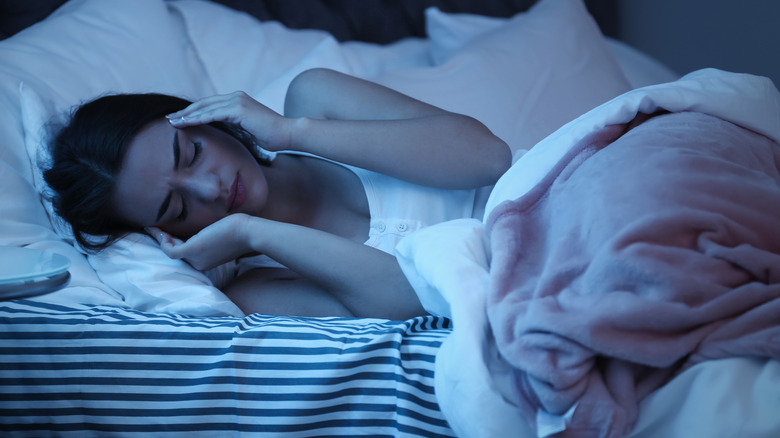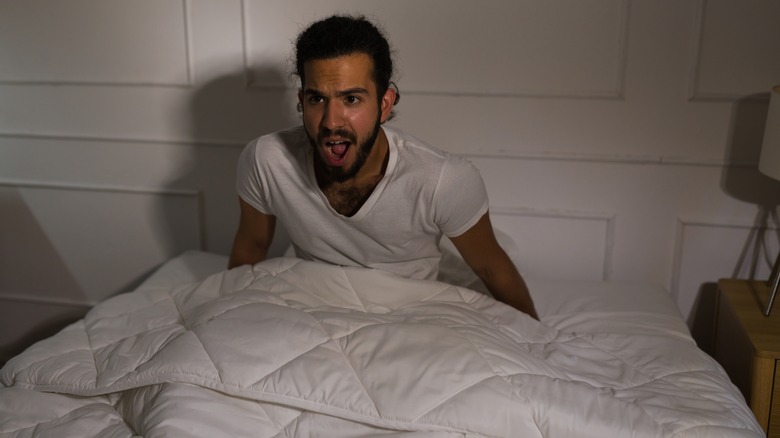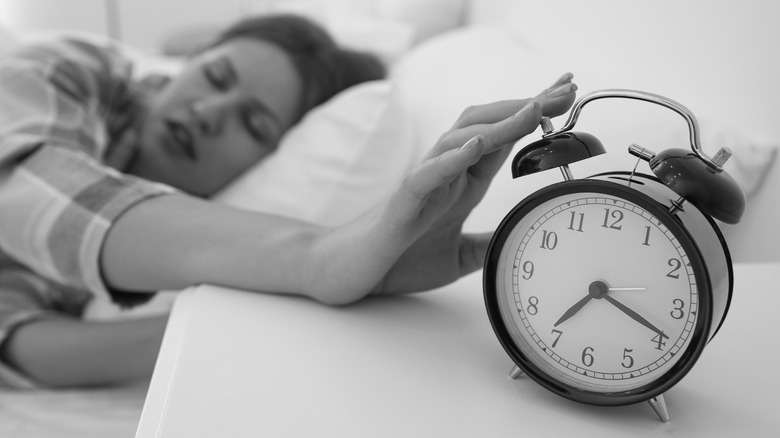Here's What It Actually Feels Like To Have A Dream Within A Dream
It's not uncommon for a person to wake up in the middle of an action-packed dream. Dreaming primarily takes place during REM sleep, in which our body is still asleep but our brain is beginning to wake up. "Some dreams with vivid content can wake you up temporarily," NYU professor Dr. Girardin Jean-Louis told mindbodygreen. Sometimes, however, that feeling of being roused from a dream can be misleading. You may feel awake; but, instead, you've only just dreamed that you've woken up.
This phenomenon of a dream within a dream is known as "false awakening," according to 2021 research published in the Journal of Clinical Sleep Medicine. For those who experience false awakenings, nothing feels out of the ordinary. A person experiences waking up in the same place they always have and proceeds to go about their day before becoming aware that all of this is taking place in a dream. While a person might not feel alarmed in the midst of the dream, they often experience feelings of discomfort in the aftermath of a false awakening.
False awakenings may evoke anxiety, fear, or confusion
In the 2021 study, researchers outlined the case of a woman in her early 20s who regularly experienced false awakenings among a number of other sleep disturbances. She took researchers through her dream-within-a-dream experience step by step, starting with waking up, eating breakfast, packing a bag for the day, and walking down the street. She noted that, upon taking the bus, her perception of time often started to feel warped. It was at this point that she sometimes woke up. Other times, she awakened once she arrived at an empty school.
The researchers highlighted that the experience of false awakenings has been associated with unpleasant emotions, such as fear. Others may experience feelings of confusion or anxiety, according to Healthline. Some people may even find themselves having a dream within a dream within a dream, referred to as "nested dreams." In cases of nested dreams, an individual undergoes several false awakenings at one time.
What's the science behind false awakenings?
While there is still little known about the underlying mechanisms behind false awakenings, experts theorize that it may potentially be related to sleep apnea or insomnia; sound disruptions; or a person's emotional state, including feelings of stress, anxiety, or anticipation of an early wake-up time (per Healthline).
Researchers from the previously mentioned 2021 study also found similarities in brain activity between those who experience false awakenings and people who experience sleep paralysis. However, the two conditions also have marked differences. Sleep paralysis is characterized by an inability to move one's body as the brain transitions from sleeping to waking up. Unlike false awakenings, sleep paralysis often occurs in a waking state. Yet researchers have also found evidence to support the notion that sleep paralysis may actually occur while dreaming. Currently, more research is still needed.
False awakenings are not considered a risk to one's health. However, if you also find yourself experiencing ongoing nightmares, fatigue, sleepiness during the day, or difficulty falling asleep, consider speaking with your doctor.



